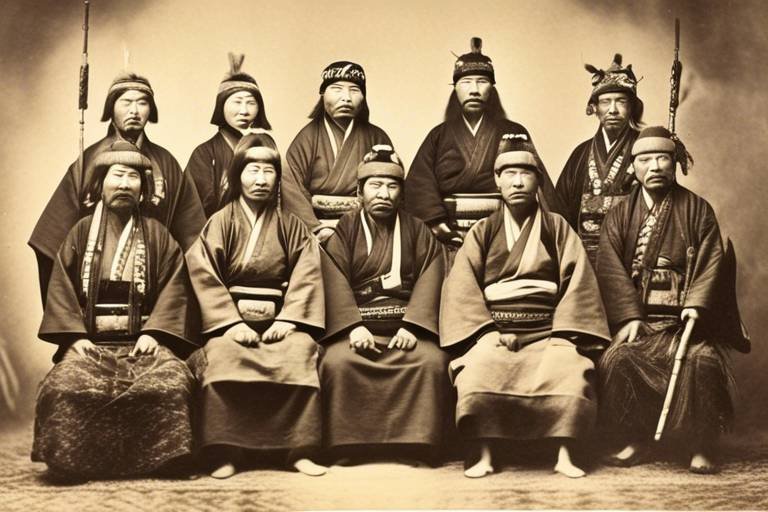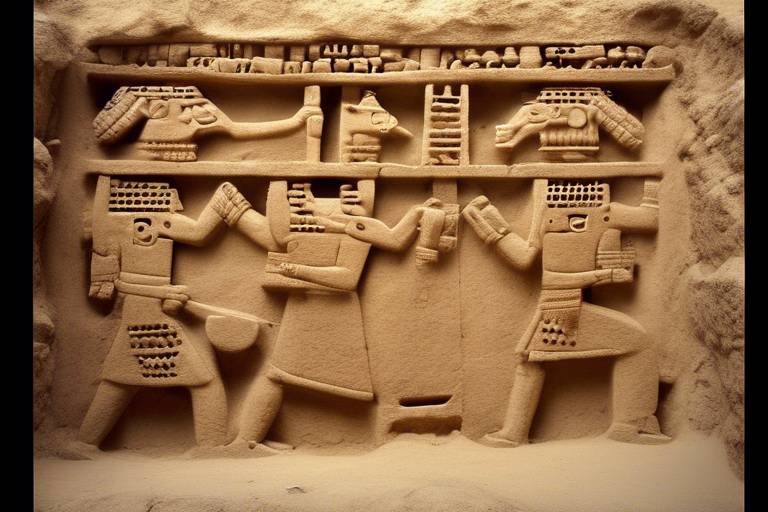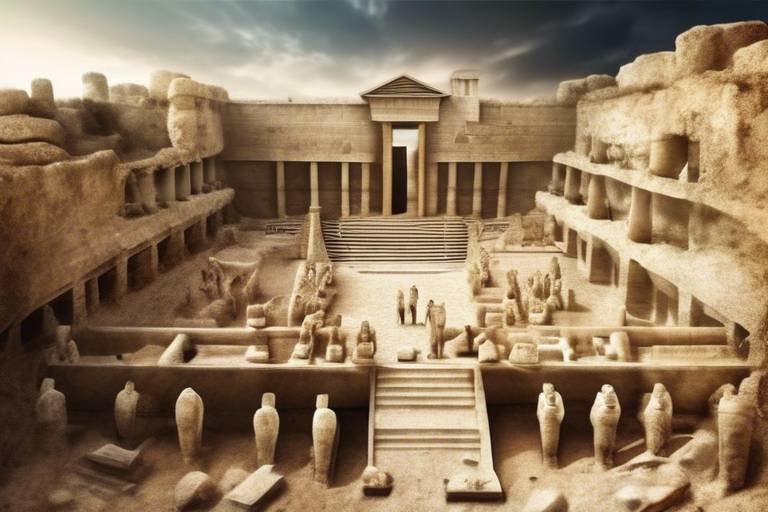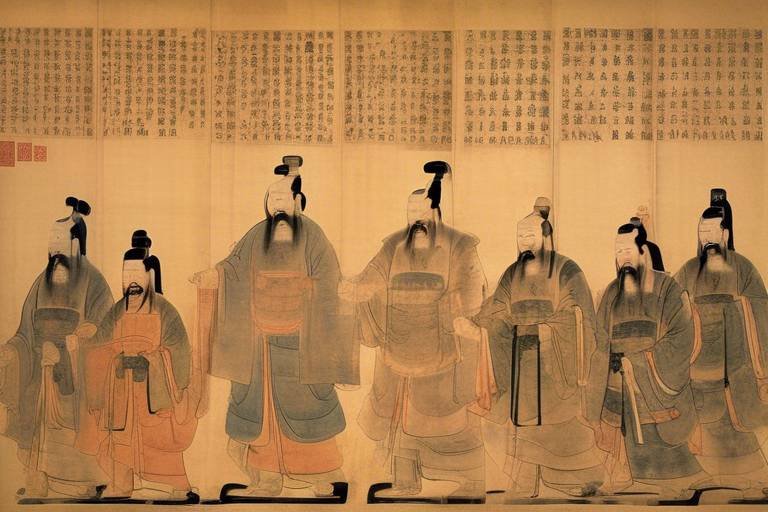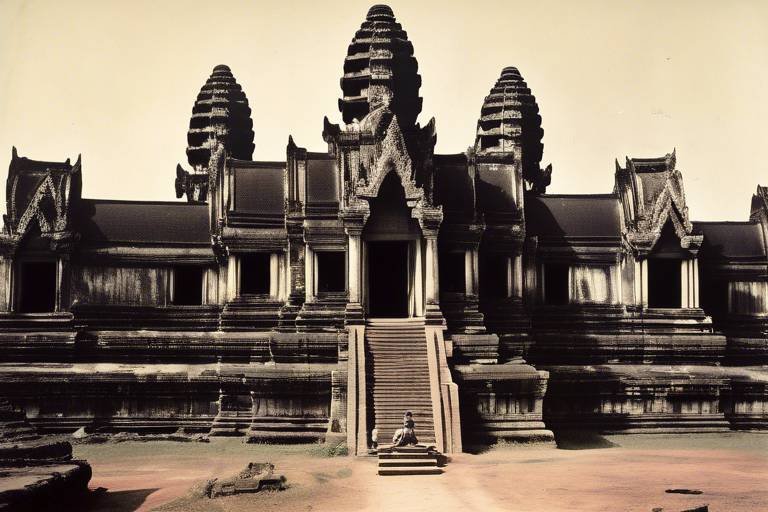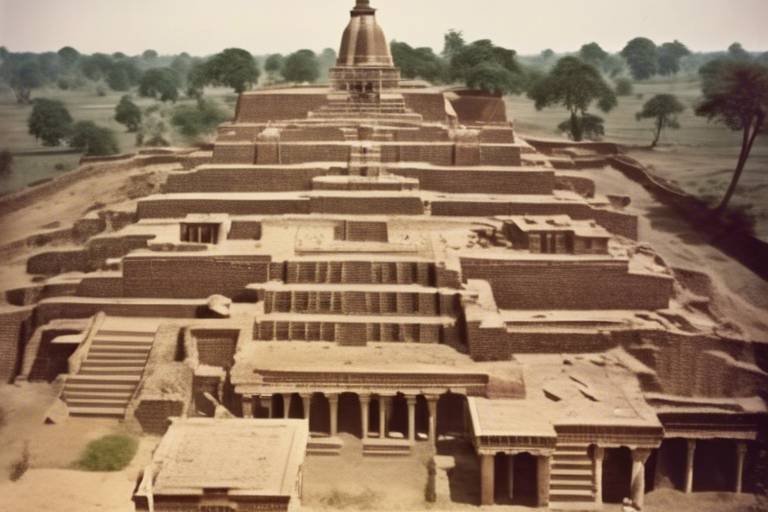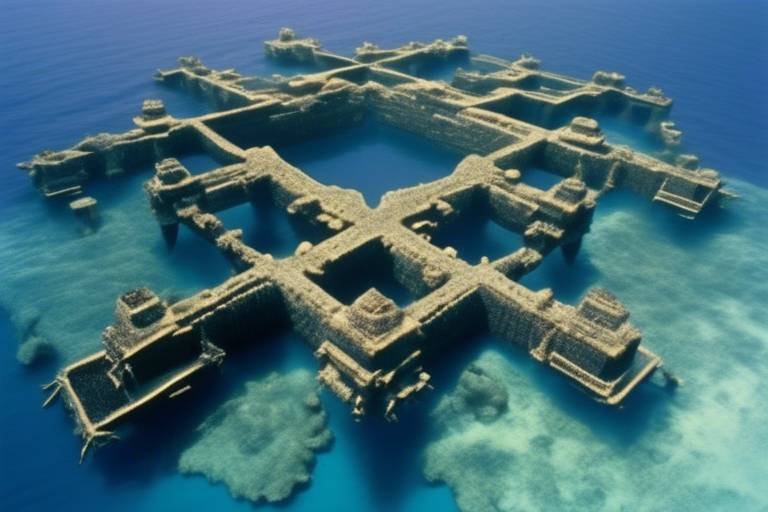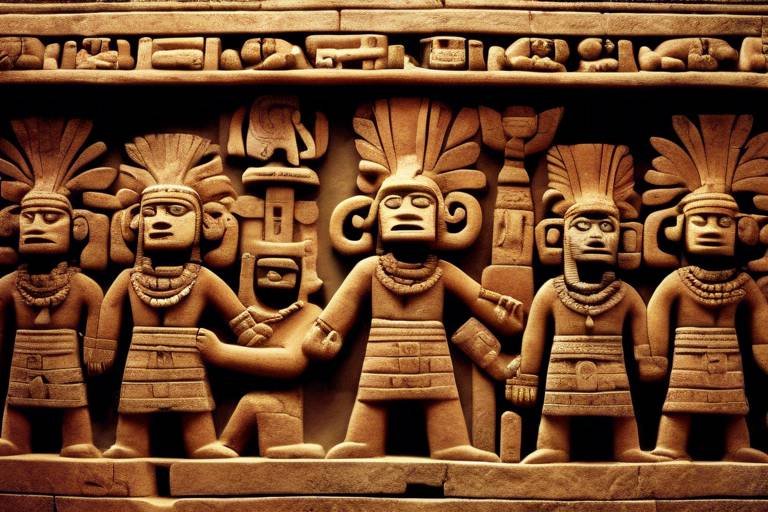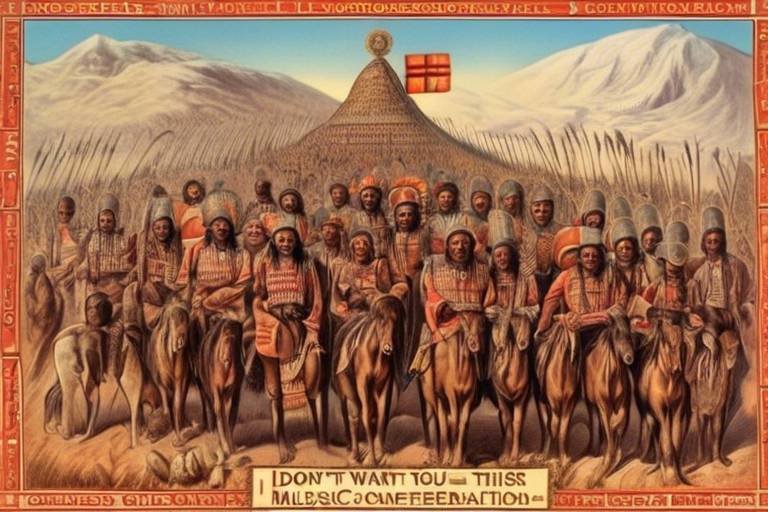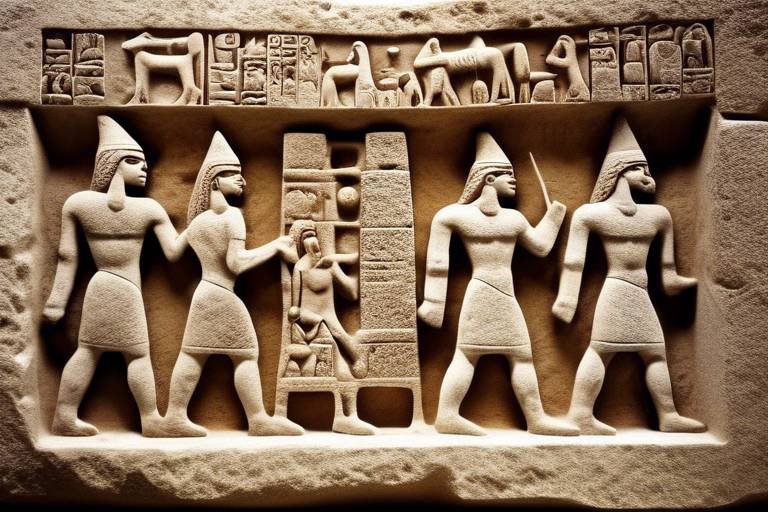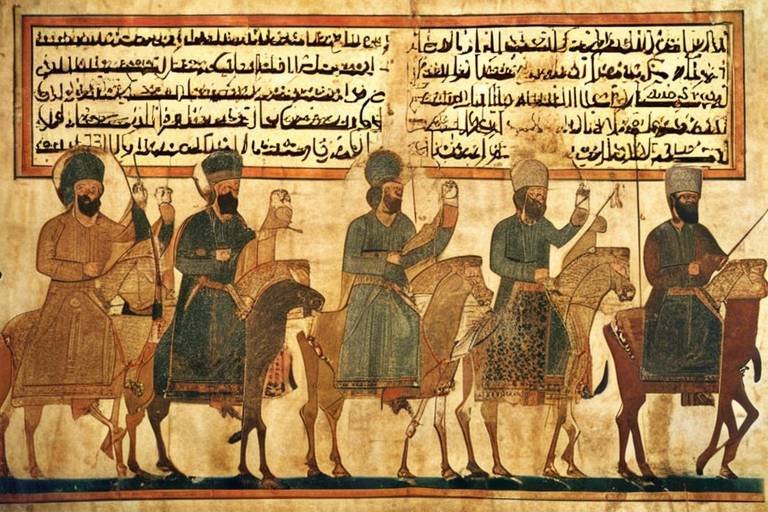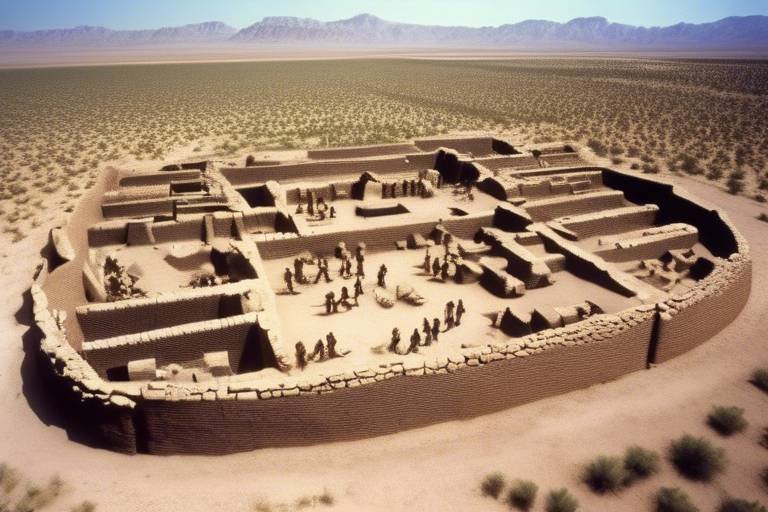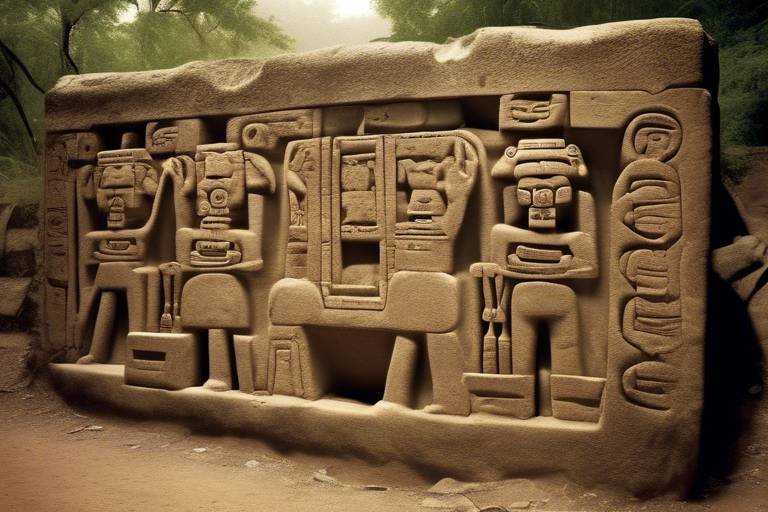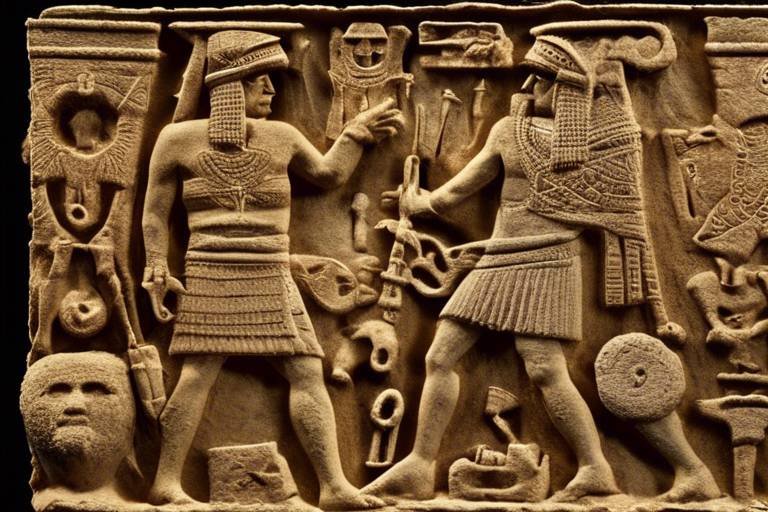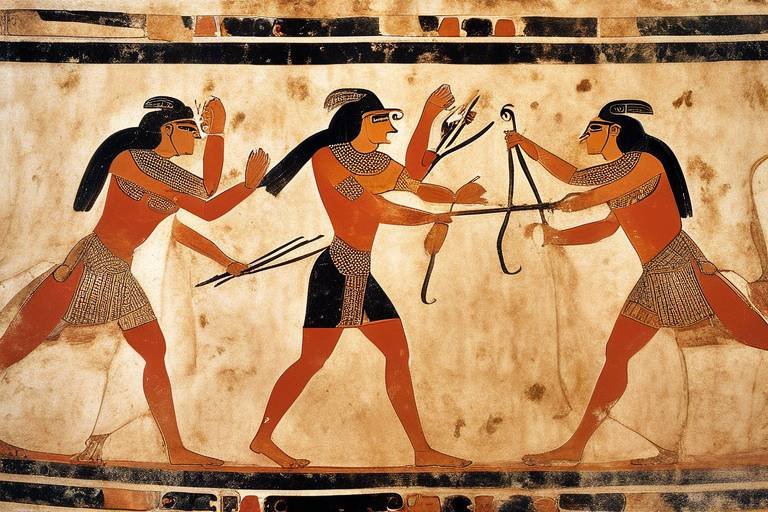The Enigma of the Ainu - Japan's Lost Indigenous People
The Ainu people, Japan's enigmatic and often overlooked indigenous group, have a rich history and cultural heritage that sets them apart from the mainstream Japanese society. Despite being the original inhabitants of Hokkaido and parts of the Russian Far East, the Ainu have faced centuries of marginalization and discrimination, leading to their status as Japan's "lost" indigenous people.
Descendants of the Jomon people who inhabited Japan thousands of years ago, the Ainu have a distinct language, customs, and spiritual beliefs that have been deeply intertwined with nature and the environment. Their unique way of life, characterized by animistic traditions and reverence for the natural world, sets them apart from the dominant Japanese culture.
Over the centuries, the Ainu have faced numerous challenges, including forced assimilation policies, land dispossession, and cultural suppression. Despite these adversities, the Ainu have persevered, maintaining their cultural practices and traditions through oral storytelling, traditional crafts, and rituals that have been passed down through generations.
Today, the Ainu community continues to grapple with issues of identity, representation, and recognition. Efforts to revitalize Ainu culture and language, promote cultural awareness, and secure indigenous rights have gained momentum in recent years, signaling a potential shift towards greater inclusivity and respect for Japan's indigenous peoples.
As Japan grapples with its complex history of colonization and cultural homogenization, the Ainu stand as a testament to resilience and cultural pride. Their journey towards reclaiming their heritage, challenging stereotypes, and asserting their rights as indigenous people reflects a broader global movement towards indigenous empowerment and decolonization.

History of the Ainu People
The history of the Ainu people is a tapestry woven with threads of resilience, struggle, and cultural richness. Originating from the northern regions of Japan and parts of Russia, the Ainu are believed to be one of the oldest indigenous groups in the country, with a history dating back thousands of years. Their ancestors are thought to have migrated to the Japanese archipelago long before the arrival of the Yamato people, who eventually became the dominant ethnic group in Japan.
Throughout history, the Ainu people have faced significant challenges, including colonization and forced assimilation by the Japanese government. The Meiji Restoration of the late 19th century marked a turning point for the Ainu, as policies were implemented to suppress their cultural practices and traditions in the name of modernization. This period saw the loss of Ainu lands, restrictions on their language and customs, and the erosion of their way of life.
Interactions with the Japanese have been complex, marked by periods of conflict, trade, and cultural exchange. The Ainu were known for their expertise in hunting, fishing, and crafting, skills that were sought after by the Japanese for trade. However, these interactions were often exploitative, leading to further marginalization of the Ainu people.
Despite centuries of adversity, the Ainu have persevered, holding onto their cultural heritage and traditions. In recent decades, there has been a growing recognition of the importance of preserving Ainu culture and language, as well as acknowledging the injustices they have faced. Efforts to revitalize Ainu identity and promote cultural awareness have gained momentum, offering hope for a brighter future for Japan's indigenous people.

Ainu Culture and Traditions
The Ainu culture is a rich tapestry of traditions that have been woven over centuries, reflecting a deep connection to nature and a profound respect for the spiritual world. At the heart of Ainu culture lies a reverence for the natural environment, with traditions deeply rooted in the belief that all living things are interconnected and should be treated with utmost care and gratitude. The Ainu people have a unique worldview that emphasizes harmony with the land, the animals, and the spirits that inhabit the world around them.
Central to Ainu culture are their traditional arts and crafts, which showcase exquisite craftsmanship and intricate designs that tell stories of their history and beliefs. From intricate woodcarvings to elaborate embroidery, Ainu art is a testament to their creativity and skill, with each piece carrying layers of meaning and symbolism. These artistic expressions not only serve as a form of cultural preservation but also as a means of passing down knowledge and wisdom from one generation to the next.
Ainu music and dance are vibrant expressions of their cultural identity, with rhythmic beats and graceful movements that convey the essence of their beliefs and experiences. Through music and dance, the Ainu people celebrate their connection to the land, the spirits, and each other, creating a sense of unity and belonging that transcends time and space. These traditional performances are not just entertainment but serve as a spiritual practice that connects them to their ancestors and the natural world.
Another integral part of Ainu culture is their distinctive clothing, which is not only a form of personal expression but also a reflection of their environment and beliefs. The intricate patterns and natural materials used in Ainu clothing symbolize their deep connection to nature and the spiritual world, with each garment telling a story of their heritage and identity. Through their attire, the Ainu people honor their ancestors and traditions, keeping their cultural legacy alive through the generations.
Culinary heritage is also a significant aspect of Ainu culture, with traditional dishes that reflect their close relationship with the land and the sea. From hearty stews made with fresh ingredients to delicately prepared seafood dishes, Ainu cuisine is a celebration of nature's bounty and a testament to their culinary expertise. The preparation and sharing of food hold a special place in Ainu culture, symbolizing hospitality, community, and the importance of sustenance in their daily lives.

Ainu Language and Linguistic Heritage
The Ainu language is a crucial component of the cultural heritage of the Ainu people, reflecting their unique identity and history. It is considered a language isolate, meaning it has no known relatives, making it a linguistic enigma that has fascinated scholars for centuries. Despite its significance, the Ainu language is classified as critically endangered by UNESCO, with only a handful of fluent speakers remaining.
Characterized by its complex phonetics and grammatical structure, the Ainu language plays a vital role in preserving the indigenous knowledge and traditions of the Ainu community. Efforts to revitalize the language include language classes, educational programs, and documentation projects aimed at recording and archiving the rich linguistic heritage of the Ainu people.
One distinctive feature of the Ainu language is its use of a unique script called the Ainu Katakana, which was developed in the 19th century by the missionary John Batchelor. This script has been instrumental in preserving Ainu folklore, oral traditions, and historical narratives, providing a written form for a language that was traditionally passed down orally from generation to generation.
Despite these efforts, the Ainu language faces numerous challenges in the modern world, including the dominance of the Japanese language, limited institutional support, and a lack of resources for language preservation. The loss of language not only threatens the linguistic diversity of Japan but also endangers the transmission of traditional knowledge and cultural practices that are embedded in the Ainu language.
As the Ainu community strives to reclaim and revitalize their linguistic heritage, the preservation of the Ainu language remains a critical aspect of their cultural revival and identity. By safeguarding their unique linguistic traditions, the Ainu people can ensure the continuity of their heritage for future generations, fostering a sense of pride and belonging among their community members.

Current Challenges Faced by the Ainu Community
Currently, the Ainu community in Japan faces a myriad of challenges that threaten their cultural heritage, social cohesion, and overall well-being. One of the primary issues confronting the Ainu people is the persistent discrimination they experience in various aspects of life. From employment opportunities to access to healthcare and education, the Ainu community often faces systemic biases that limit their social mobility and economic prosperity.
Moreover, the land rights of the Ainu people remain a contentious issue, with many traditional lands being encroached upon or exploited for commercial purposes without adequate consultation or consent from the indigenous inhabitants. This not only undermines the cultural significance of these lands but also threatens the livelihoods and sustainability of the Ainu communities who rely on them for their way of life.
Another significant challenge faced by the Ainu community is the lack of political representation and voice in decision-making processes that directly impact their lives. Despite efforts to promote diversity and inclusion in Japan, the Ainu people continue to be underrepresented in local and national governance structures, limiting their ability to advocate for their rights and interests effectively.
Furthermore, the impact of modernization and globalization has posed challenges to the traditional practices and cultural norms of the Ainu people. As younger generations increasingly adopt mainstream lifestyles and technologies, there is a risk of losing traditional knowledge, skills, and practices that have been passed down through generations, further eroding the cultural identity of the Ainu community.
In addition to these challenges, the Ainu community also grapples with economic disparities and limited access to resources and opportunities that could help improve their quality of life and promote sustainable development within their communities. Addressing these multifaceted challenges requires a holistic approach that involves collaboration, advocacy, and empowerment of the Ainu people to ensure their rights are respected, their voices are heard, and their cultural heritage is preserved for future generations.

Revitalization Efforts and Cultural Preservation
Revitalization efforts and cultural preservation play a crucial role in safeguarding the rich heritage of the Ainu people in Japan. Various initiatives and programs have been established to revitalize Ainu culture, preserve traditional knowledge, and empower the Ainu community. Collaborations between governmental bodies, non-profit organizations, and indigenous groups have been instrumental in promoting cultural awareness and ensuring the continuity of Ainu traditions.
One significant aspect of the revitalization efforts is the promotion of Ainu arts and crafts, such as intricate woodcarvings, traditional embroidery, and distinctive patterns in textile works. These artistic expressions not only showcase the unique aesthetics of Ainu culture but also provide economic opportunities for Ainu artisans, contributing to the sustainability of traditional practices.
Furthermore, educational initiatives have been implemented to raise awareness about Ainu history, language, and customs among the general population in Japan. By incorporating Ainu perspectives into school curricula and cultural programs, efforts are being made to combat stereotypes and misconceptions, fostering greater understanding and respect for the Ainu people.
In addition to cultural revitalization, environmental conservation plays a vital role in preserving the natural resources that are integral to Ainu traditional practices. Sustainable hunting and fishing practices, as well as the protection of sacred lands, are essential components of cultural preservation efforts, ensuring the continuation of age-old traditions that are deeply intertwined with the natural world.
Collaborative projects between Ainu communities and governmental agencies aim to secure land rights for the Ainu people, allowing them to maintain their connection to ancestral territories and engage in traditional activities such as fishing, gathering medicinal plants, and conducting rituals in sacred sites. These efforts not only support cultural preservation but also promote the self-determination and autonomy of the Ainu community.

Ainu Traditional Practices and Rituals
The Ainu people have a rich tapestry of traditional practices and rituals that have been integral to their way of life for generations. These practices encompass a deep connection to nature, spiritual beliefs, and community cohesion. One of the central aspects of Ainu traditional practices is their sacred rituals, which are performed to honor the natural world and ancestral spirits. These rituals often involve offerings, prayers, and dances that seek to maintain harmony between humans and the environment.
Additionally, hunting and fishing have been vital practices for the Ainu people, not only for sustenance but also as cultural traditions that have been passed down through the ages. The Ainu have developed sophisticated techniques for hunting animals such as bears and deer, showing reverence for the animals they hunt and utilizing every part of the animal to minimize waste. Similarly, fishing has been a fundamental part of Ainu life, with rituals and ceremonies associated with fishing activities to ensure bountiful catches and express gratitude to the spirits of the sea.
Craftsmanship is another significant aspect of Ainu traditional practices, with intricate skills passed down from generation to generation. Artisans create beautiful woodcarvings, intricate embroidery, and distinctive patterns in their clothing, all reflecting the unique cultural identity of the Ainu people. These crafts not only serve practical purposes but also hold symbolic meanings that connect the Ainu to their heritage and ancestors.
Storytelling traditions play a crucial role in preserving Ainu cultural knowledge and passing down wisdom to future generations. Through oral narratives, myths, and legends, the Ainu share their history, beliefs, and values, ensuring that their cultural heritage endures. These stories often contain moral lessons, explanations of natural phenomena, and accounts of ancestral deeds, providing a profound insight into the Ainu worldview and way of life.
Furthermore, the Ainu have traditional music and dance forms that are performed during various ceremonies and celebrations, adding vibrancy and rhythm to their cultural expressions. These artistic practices serve as a means of cultural expression, community bonding, and spiritual connection, embodying the essence of Ainu identity and resilience in the face of historical challenges.

Discrimination Against the Ainu People
Discrimination against the Ainu people has been a longstanding issue that has deeply impacted their community in Japan. Historically, the Ainu have faced marginalization, stereotypes, and prejudices that have hindered their social and economic progress. The discrimination against the Ainu is rooted in a complex history of colonization and assimilation policies imposed by the Japanese government, which aimed to suppress Ainu culture and identity.
One of the key forms of discrimination faced by the Ainu is the lack of recognition and protection of their land rights. The Ainu have traditionally inhabited the northern regions of Japan, but over the years, their lands have been encroached upon and exploited without their consent. This has led to a loss of traditional territories and resources, further marginalizing the Ainu people.
Additionally, stereotypes and misconceptions about the Ainu have perpetuated discriminatory attitudes in Japanese society. The portrayal of the Ainu as primitive or backward has contributed to their stigmatization and exclusion from mainstream cultural narratives. This has limited opportunities for the Ainu to participate fully in society and has perpetuated systemic inequalities.
Efforts to combat discrimination against the Ainu people have been ongoing, with advocacy groups and community leaders working to raise awareness about their plight and promote inclusivity. Legal reforms have been introduced to protect Ainu cultural rights and heritage, but more needs to be done to address the deep-seated biases and structural barriers that continue to affect the Ainu community.
It is crucial for society to recognize and confront the discrimination faced by the Ainu people in order to build a more equitable and inclusive future for all. By acknowledging the unique cultural contributions and historical experiences of the Ainu, Japan can move towards a more respectful and harmonious coexistence with its indigenous population.

Future Prospects for the Ainu Indigenous People
Considering the future prospects for the Ainu indigenous people in Japan involves a complex interplay of cultural revival, political recognition, and sustainable development. As efforts to preserve and promote Ainu heritage gain momentum, there is a growing sense of optimism for the community's prospects.
One key aspect of the future outlook for the Ainu people lies in the recognition of their cultural rights and indigenous status. Advocacy for official recognition of the Ainu as an indigenous people in Japan has been gaining traction, paving the way for increased political representation and protection of their cultural heritage.
Moreover, the potential for sustainable development initiatives within Ainu communities holds promise for economic empowerment and self-determination. By leveraging traditional knowledge and practices in areas such as eco-tourism, handicrafts, and sustainable resource management, the Ainu people can chart a path towards economic independence and cultural revitalization.
Educational opportunities also play a crucial role in shaping the future prospects of the Ainu community. By integrating Ainu history, language, and cultural traditions into mainstream education, there is a chance to foster greater awareness, understanding, and appreciation for the richness of Ainu heritage among future generations.
Furthermore, ongoing efforts to preserve and revitalize Ainu language and traditional practices are essential for ensuring the continuity of their cultural legacy. Language revitalization programs, cultural exchange initiatives, and intergenerational knowledge transmission are vital components in safeguarding the unique identity of the Ainu people for years to come.
In conclusion, the future prospects for the Ainu indigenous people in Japan are intertwined with the collective efforts to uphold their cultural heritage, secure their rights, and foster sustainable development within their communities. By embracing these challenges and opportunities, the Ainu community stands poised to carve out a vibrant and resilient future that honors their past and embraces the promise of tomorrow.
Frequently Asked Questions
- What is the history of the Ainu people?
The Ainu people are the indigenous inhabitants of Japan, with a rich history dating back thousands of years. They have faced colonization, assimilation, and marginalization throughout history, impacting their cultural identity and way of life.
- What are some traditional practices of the Ainu culture?
The Ainu culture is known for its unique practices such as ritual ceremonies, hunting techniques, storytelling traditions, and craftsmanship. These customs have been integral to the Ainu way of life and are important for preserving their cultural heritage.
- How is the Ainu language being revitalized?
The Ainu language, considered endangered, is being revitalized through educational programs, language classes, and cultural initiatives. Efforts are being made to preserve this linguistic heritage as a crucial aspect of Ainu cultural identity.
- What challenges do the Ainu people face today?
The Ainu community faces challenges such as discrimination, lack of recognition, and struggles for land rights. Addressing these issues is crucial for the empowerment and preservation of the Ainu culture and traditions.
- What is being done to combat discrimination against the Ainu people?
Various organizations and advocacy groups are working to raise awareness, combat stereotypes, and promote inclusivity for the Ainu community. Efforts are being made to challenge discriminatory practices and foster understanding and respect.
- What are the future prospects for the Ainu indigenous people?
The future prospects for the Ainu people include cultural revival, recognition of rights, sustainable development, and increased educational opportunities. It is essential to support these initiatives to ensure the preservation of the unique Ainu heritage in Japan.

